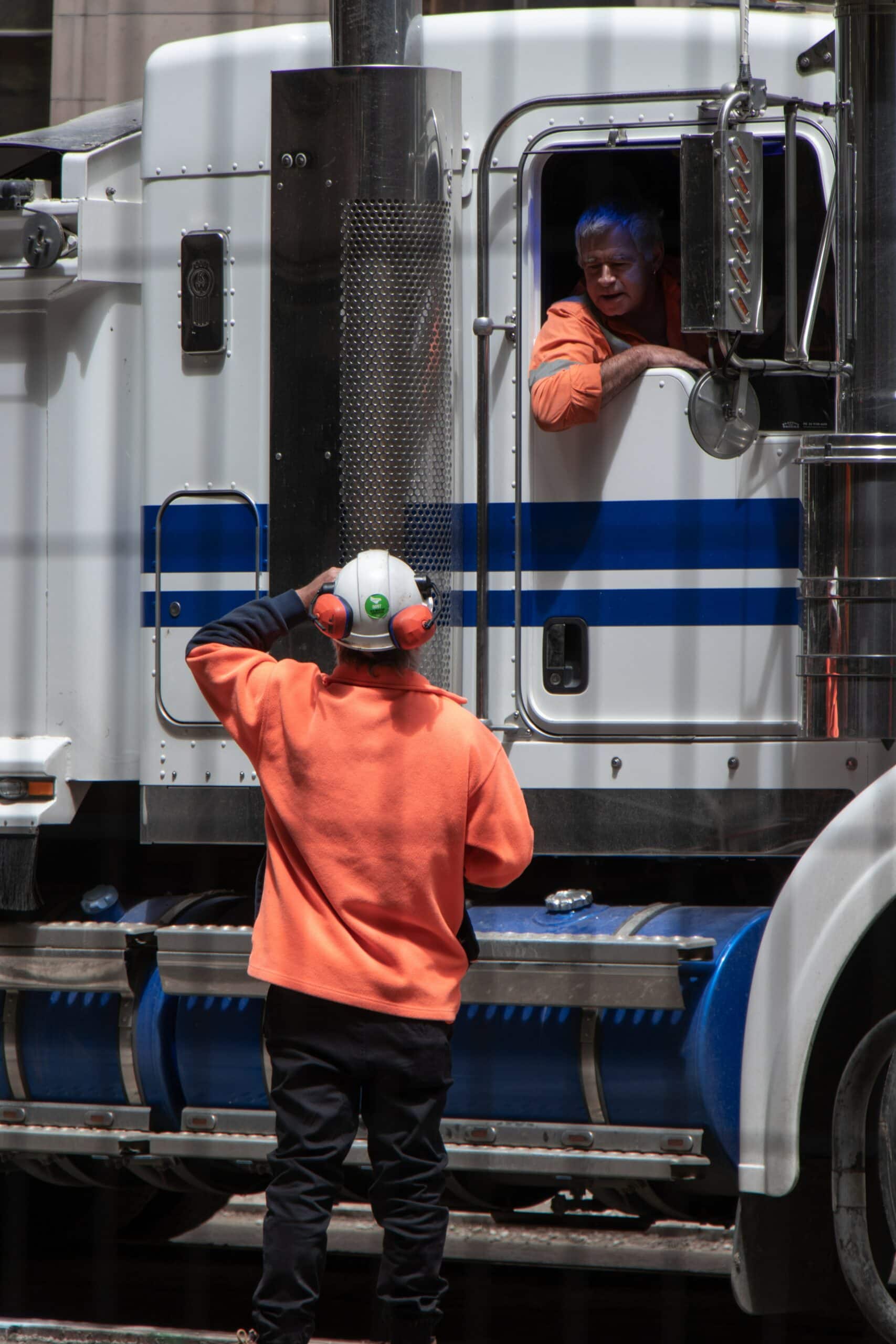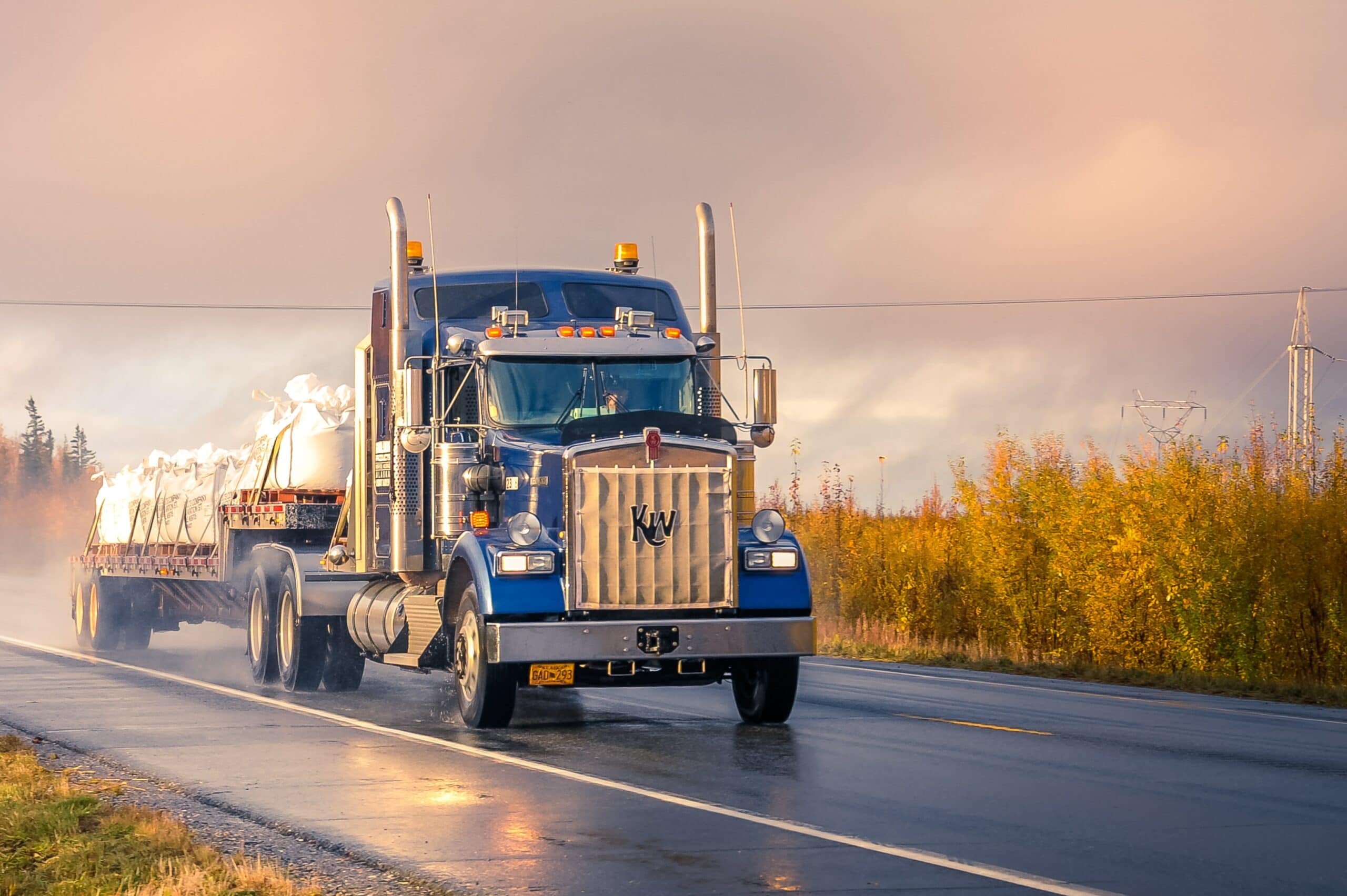What are owner operator expenses? It’s important to know, because as an owner operator you’re responsible for a lot more of the expenses than a company driver would be. To run your owner operator business well, you need to have a very clear understanding of your expenses.
One of the most important parts of being an owner operator is understanding your expenses well enough to make sure you can always cover them. Otherwise you could quickly find yourself in debt, and the situation can spiral out of control.
Owner operator expenses aren’t especially difficult to understand. The real key is keeping track of them and learning to anticipate what your expenses will be. That will tell you how much you need to earn from any given job.

What Are Owner Operator Expenses?
A lot of people want to become owner operators so that they can earn more money. And it’s true that you can earn more as an owner operator. But you absolutely have to account for the expenses of operating your truck before you pay yourself. Good account management is key to maximizing your earnings.
It’s not just about planning for your expenses so you know how much to charge for your services. Understanding your expenses also helps you to minimize them. Keeping your expenses as low is important if you want to earn more as an owner operator than you did as a company driver.
Some of your expenses are fixed expenses. That means there’s nothing you can do to lower them. Others are variable, which means you can find ways to reduce them. We’ll teach you all about both kinds of expenses.
Truck payments
Being an owner operator means buying or leasing a truck. This can easily be your biggest single expense. Trucks aren’t cheap, and even used trucks can easily cost close to $100,000 if you choose a high-end model.
Fortunately, they can also be as cheap as $40,000. So, one of the best ways to keep the cost of your truck payments low is to buy a used truck, and stick to the lower end of the price range. You might be interested in leasing your truck so that you don’t have to make a downpayment.
Downpayments on truck loans are a big expense, and it can take a while to save up that much cash. Leasing can be a way to get into the business faster. Just pay close attention to the size of the monthly payments. You might find yourself with higher monthly costs on a lease.
Plus, when you buy your own truck, each monthly payment is an investment. You’re building equity in your truck. With a lease, that money is all going to the owner. It’s just an expense, not an investment.

Maintenance
What are owner operator expenses? Well maintenance and repair costs are an important part of your expenses. You’ll be spending thousands of hours in your truck, putting thousands of miles on it in a very short amount of time.
That means it’s going to need a lot of preventative maintenance to keep it in good condition. It can be tempting to put off important maintenance work to save money, but that approach will end up costing you more money in the long run.
That’s because, in the long run, you’ll end up needing more expensive repairs if you don’t perform the right preventitive maintenance. And it’s not just the cost of the repairs, either. While your truck is in the shop, you’re unable to earn. You have to factor in both the cost of the repair and the money you’ll lose from not working.
You’ll probably need to replace your tires each year, and you’ll need oil changes regularly. As a rule, you should plan on setting aside 10% of your gross earnings for maintenance costs. Having that cash on hand is a huge comfort when the time comes for your truck to get repair work done.
Fuel and tolls
Anybody asking “what are owner operator expenses” is bound to be worried about the cost of fuel. Company drivers usually have a fuel card issued by their employer. All their fuel is paid for, and it’s not an out-of-pocket expense. A lot of them probably feel a huge sense of relief at the fuel pump knowing they aren’t the ones paying for that!
Owner operators don’t have that luxury. You have to pay for your fuel yourself. You can still set up a fuel card for yourself, it’s just that you’ll still be paying for that fuel out of your gross earnings. In strictly financial terms this actually isn’t any different from what company drivers do- it’s just that now you’re the company.
In addition to fuel costs, you’ll also need to pay for your tolls now. Most company drivers have that expense covered by their employer, either with petty cash or with a company toll tag. You’ll have to provide this for yourself now.

Licensing and documentation
A lot of owner operators forget to account for these expenses. But we can’t talk about what are owner operator expenses without talking about the fees you’ll pay for licenses, permits and documentation. A lot of these are recurring, yearly expenses.
This means things like business licenses, inspections fees, registration fees, transport permits, and renewal fees. The exact permits and fees will vary from state to state, so you’ll need to check with your state government to determine exactly what these costs will end up being.
Insurance
Insurance is another major part of what are owner operator expenses. Trucks are not cheap to insure! You can save money on your truck insurance by getting a policy with less coverage and higher deductibles, but that means you’ll be paying more out of pocket if your truck breaks down or gets hit by another truck.
That’s always the gamble with insurance- either you save money on your monthly premium or you pay a higher premium and save money on unexpected emergency expenses. Some people prefer to spend more on a monthly payment since they can budget for that, while others would rather save each month and put some of those savings aside in an emergency fund.
And don’t forget, it’s not just truck insurance that you need. You also need health insurance. Now that you’re working as an independent contractor, you don’t have an employer providing your health insurance for you. You’ll have to buy your own policy.
Taxes
Everyone’s least favorite answer to “what are owner operator expenses” is taxes. In most jobs your employer withholds your taxes from your paycheck so you never have to worry about them. But now that you’re an owner operator you’ll have to handle your tax payments yourself.
The IRS can help you estimate what your tax payments need to be, and then you’ll just need to make four payments each year- one per quarter. But you should know that your taxes will be higher as an owner operator. That’s becuase now you’ll have to pay the self-employment tax.
Self-employment taxes are just social security and medicare contributions. Normally, you’re employer contributes half of those for you, but now you have to pay them all on your own. That’s why your taxes go up.
You’ll also have business taxes, road use and fuel taxes to consider. It might be a good idea to work with a CPA to make sure you pay all of your taxes, and in the right amounts.

Food and drink
You’ve gotta eat, but most people don’t think about food and drink when they’re answering what are owner operator expenses. It’s easy to overlook something so mundane, but the cost of your food and drink while you’re on the road can add up quickly. You’re probably used to eating out for every meal while you’re working but you might want to reconsider.
A lot of trucking companies give their drivers a per diem to pay for their meals, but that’s not happening for you anymore. You’re going to have to pay for your own food and drink, and it might be a good idea to consider making your own food.
You can install a mini fridge in your sleeper, and even a microwave. Then you can buy your food at grocery stores and make your own meals. This can save you a lot of money, and it’s also quite a bit healthier for you.
Professional Services
What are owner operator expenses? They’re business expenses, because owner operators are business owners, not just truck drivers. And that’s an important thing to understand. You’re now running a business, and that means you’ll probably be paying for professional services to keep your business running smoothly.
Broker fees are one of the most common professional service expenses. You’ll have to use freight brokers to find loads for you to haul. You’ll end up paying them between 10% and 20% of your profit from each load.
If you want to avoid paying broker fees, you can try paying for a load board. This is the trucking equivalent of a job board. Instead of paying a broker for each load, you pay a monthly fee and log on to the load board to find loads for yourself. A lot of owner operators like these boards because they tend to offer some of the highest paying loads.
Factoring expenses may be something you’ve never heard of, but you’ll definitely want to look into it. It’s a service that helps improve your cash flow. Without factoring, it can take over a month, and as long as 90 for you to get paid after you submit an invoice. Factoring pays you immediately, and then takes responsibility for securing the payment from the shipper.
There are two types of factoring: recourse and non-recourse. Recourse factoring is a bit cheaper, but if the factoring service is unable to secure payment from the shipper you’ll be on the hook for paying them back. Non-recourse factoring is more expensive, but you’ll never have to worry about paying the factoring service back.
One part of what are owner operator expenses is the cost of a transportation management system. For a monthly fee, these services automate the majority of your paperwork. This is well worth it, since that paperwork can eat up most of your free time otherwise. It includes things like invoices, customer agreements, and reports.

What Are Owner Operator Expenses? Fixed vs Variable
Now that we’ve covered what owner operator expenses are, it’s time to talk about fixed expenses vs variable expenses. This is vital information. Without understanding this it will be hard for you to minimize your expenses and increase your profit margin.
Fixed Expenses
Fixed expenses can’t be easily changed. That doesn’t mean there’s nothing you can do to save money on them, but there’s a lot less flexibility with these expenses. Some of them are completely outside your control, while other’s aren’t.
Your licensing fees, broker fees, load board fees, and other professional services are fixed expenses that you have little control over. The prices are set by someone else, and while you can pick and choose which services to use, they can dictate the price to you.
Your truck payment is another fixed expense. Once you’ve purchased your truck, the only way to change the monthly payment is to refinance your loan. You do have some control here, though. You can keep your monthly payments small by buying more affordable trucks and by making a bigger down payment.
Insurance is another fixed expense, and another one that you still have some control over. When you’re selecting insurance plans, you can choose one with a lower premium to minimize your monthly expenses. We’ve already pointed out that there’s some risk here, but you may decide it’s worth it to keep your monthly expenses down.
Variable expenses
What are owner operator expenses that you can save money on? Variable expenses are the easiest way to save money because there are ways to reduce your costs. When you need to cut back on your expenses, these are the first ones you should look at.
Fuel is the big one. Fuel is expensive, and you’re always going to have to use it. It’s a vital part of the business. But there’s always a way to save money on fuel. Even small changes that let you use less or save a bit at the pump can lead to big savings at the end of the month.
Maintenance costs are also variable. While you should never skip necessary maintenance, you can find mechanics who will charge less. Or, you can learn to perform much of the routine maintenance on your truck yourself. That way you aren’t paying labor costs.
Food and drink are another variable expense. By installing a mini fridge and buying groceries instead of eating out for every meal, you can reduce your daily expenses significantly.

How To Minimize Your Expenses
Cutting back on your expenses can be easier than you might expect. Once you’re fixed expenses are set, you can focus on your variable expenses. By cutting back on these you can widen your profit margin.
Saving on Fuel
To save on fuel, follow all the standard advice you’d normally use when driving a regular car. Choose the most fuel-efficient routes and keep your speed lower than normal. You can save a lot of fuel by driving at 65 miles per hour rather than 70 or 75.
Making sure your tires are in good shape and inflated properly can also maximize your fuel efficiency. But one way to save at the pump is to get a fuel card. These cards are specific to one fuel company, and they’ll usually offer you a discount when you sign up for the card. That’s because you’re typically agreeing to only buy fuel from that provider, so be sure it’s one with plenty of fuel stations on your regular routes.
Saving on Taxes
Taxes are generally a fixed expense, but you can save on taxes by taking advantage of some deductions that are just for owner operators. This can lower the amount you have to set aside for your quarterly tax payments.
The per diem deduction lets you deduct the amount that you spend on food and drink from your taxes. You can also deduct the depreciated value of your truck. Basically, you take the amount of value your truck has lost in this tax year and deduct that from your overall income. That means it’s a more effective deduction for owner operators who’ve bought their truck recently, since that’s when the most depreciation happens.
Buying Groceries
Instead of eating out for every meal, buy a mini fridge and microwave for your sleeper. That way you can just pick up groceries at the store and make your own meals. You can easily cut your food and drink costs in half or more this way.
As an added bonus, you’ll also be a lot healthier. You can store fruits and vegetables in that fridge, so you aren’t stuck eating junk food. This saves on more than just food costs- it also means you’ll probably save some money on medical expenses in the long run.
Conclusion
Understanding owner operator expenses is a huge part of being a successful owner operator. Without a clear understanding of what your expenses are you’ll always struggle to stay afloat. Knowing what your expenses are helps you plan for them, but it also helps you find ways to reduce your expenses.
And reducing your expenses is the key to making money as an owner operator. Since you have to cover all of your operating expenses yourself, it’s vital to minimize your expenses. You might finally understand why your old trucking companies went to such great lengths to reduce operating costs!
Saving on fuel, food, taxes and maintenance can make all the difference between being successful and struggling as an owner operator.
About Booker Transportation
Booker Trans is 100% Owner Operator. It is our belief that an Independent Owner is the best way to get a customers freight delivered timely and safely. Booker is a leading Refrigerated Carrier providing the best lease options in the industry for today’s Owner Operators. Monthly and Yearly Awards, Longevity Bonuses, and the Free tires for Life of Lease Program, are just a few examples of what Booker Trans offers the Owner Operator. Booker Trans has built it’s success upon working partnerships with Customers, as well as Agency Relationships built over the last 20 years. Those same relationships are what makes consistent year round freight possible.
Are you interested in becoming an owner operator driver or getting into the logistics industry?
Let’s connect!
Navigating the Highways of Change
04/18/2024

Owner Operators should be prepared for Cellular Service outages!
03/06/2024

